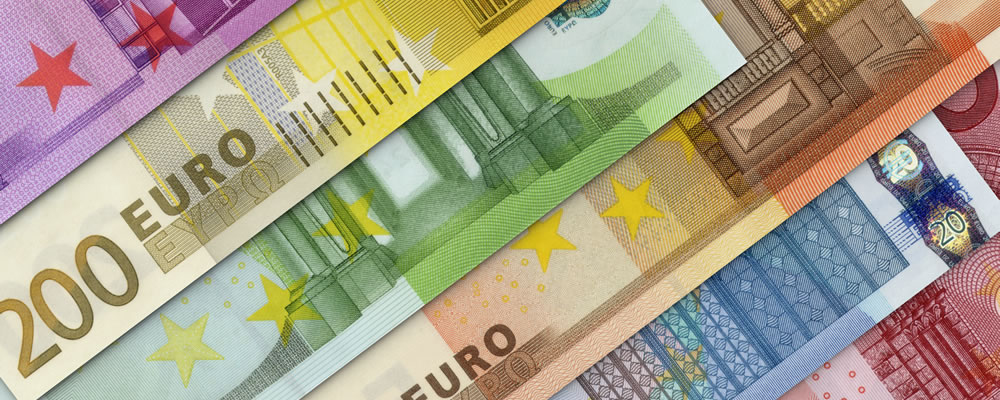- Forecast Looks Negative for Euro Canadian Dollar Exchange Rate – The recovering Canadian economy and ongoing Brexit dealings keep pairing muted.
- Rising Oil and Commodity Prices Bolster ‘Loonie’ – CAD moves unexpectedly in response to oil price shifts.
- Markets Begin to Settle in Post-Brexit Economic Landscape – EU seems to be changing tune in regards to treatment of the UK’s exit.
- ECB Head Mario Draghi Announces Expected Eurozone GDP Drop – Turmoil caused by the UK’s departure could see GDP drop under 1%.
The Euro Canadian Dollar exchange rate has seen rather large fluctuations since the start of the week’s session after recovering from the UK’s Brexit result to some extent.
Never straying too far from the 1.44/1.43 mark, uncertainty has continued to plague the EUR/CAD pairing as the Eurozone and the European Union’s future is at stake during these tumultuous times.
Rising oil prices have also triggered movement in the pairing, but greater market uncertainty still keeps any gains capped as the ‘Loonie’ is considered a riskier bet. The comparatively stable Euro is continually struggling with the Brexit fallout, an averaged index for the currency reports a 1.35% decline since the UK’s referendum but the currency appears to be gaining some traction now the post-Brexit economic and political landscape has started to clear, even marginally.
Currently the Euro Canadian Dollar Exchange rate is trading at 1.4401 and has rallied 0.10% since the start of today’s session.
Euro (EUR) Rebounds Slightly as Eurostocks Rally – Hampered by Future Brexit Risks
Since last week’s referendum and the UK’s decision to leave the European Union was confirmed, the Euro has struggled under concerns of a precarious future for the European Union.
Politicians worry that the frothing anti-EU sentiment wafting from the United Kingdom could be contagious as a significant number of member states already have large Eurosceptic conclaves. Subsequently, demand for the Euro has not been huge.
Mario Draghi took to the stage in Sintra, Portugal on Monday to proclaim his sadness for Britain’s Brexit but skirted around the issue after the initial comment, instead focusing on the need for central banks to cooperate on policy on a more global scale as it is clearer than ever the world-wide economic impact of significant events.
Draghi also met with EU policymakers on Tuesday to discuss the Brexit in more detail. The ECB chief concluded that the UK’s departure could see Eurozone annual growth fall 0.3-0.5% cumulatively. Draghi continued to say growth could be further impacted by lower stock prices driving up the cost of capital.
It was not all dovish however as Draghi finished by stating that the nature of future budgets should be aimed at stimulating growth.
The rebound in Eurostocks has served to place upward pressure on the common currency but uncertainty looks to remain for some time.
Strengthening Canadian Economy and Rising Commodities Bolster Canadian Dollar (CAD)
The ‘Loonie’ has continued to wrestle with some post-Brexit tensions as the huge wave of economic and political uncertainty unleashed by the UK’s referendum had seen investors shy away from any remotely risky assets and flood into safe-havens.
The Canadian economy has been on the back-foot for some time now but the recent rise in oil prices, amongst other commodities, saw steady demand for CAD. Rising copper and gold values helped bolster the currency after some unusual inverse movement relating to oil prices earlier in the week.
There is a general feeling, however, that the Canadian Dollar should be fairly isolated from further woes across the pond unless any events have a notable impact on oil or other commodities.
The Composite Leading Index, a collation of nine varied economic indicators, printed 2.6% higher than previously and could hint towards the Canadian economy finally gaining some momentum.
Euro Canadian Dollar Exchange Rate Looks to fall as Canadian Economy Begins Uptick
The Canadian economy has started to appear in recovery, as indicated by the CLI print. Associate director of national forecasting at the Conference Board of America, Matthew Stewart expects a brighter future for Canada:
‘The rise in the indicator suggests that the outlook for the Canadian economy has improved, oil prices continue to recover, financial markets and consumer confidence are rebounding, which are pointing to optimism on the part of investors and consumers. Canada’s economy should finally be gaining momentum towards the final months of the year.’
Canadian GDP figures are set for release later this afternoon, with forecasters expecting a 0.3% rise in the figure to 1.4%. If the report manages to best forecasts, we could expect to see a fresh wave of ‘Loonie’ demand.
The European Union has altered its approach in regards to dealing with the Brexit. Maltese Prime Minister Joseph Muscat has described it as a welcome shift in attitude and eluded to the ‘unasked question’ lingering at the back of EU officials’ minds of whether the UK will actually leave the European Union. This could be a fresh injection of hope for the ‘Remainers’ and investors as both would stand to be in a more comfortable position if the Brexit were not to occur, or so they attest.
Now the markets have cooled off somewhat, a wait-and-see attitude appears to be forming as the EU-UK talks have started to make some, fairly minuscule, progress. For now it appears that the Euro Canadian Dollar exchange rate will continue to fall as Canada recovers from its economic struggles.



